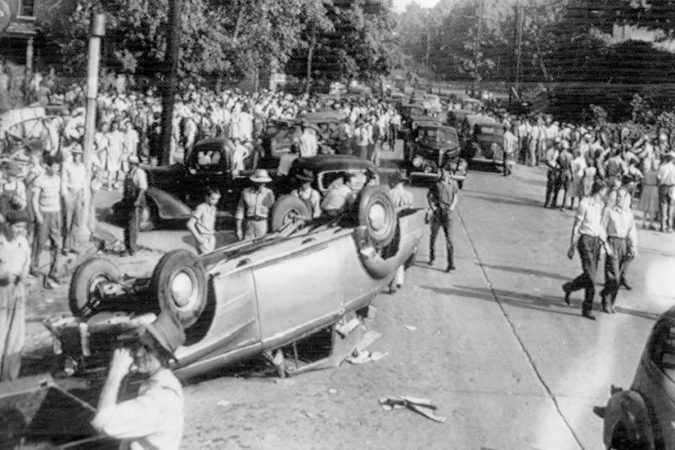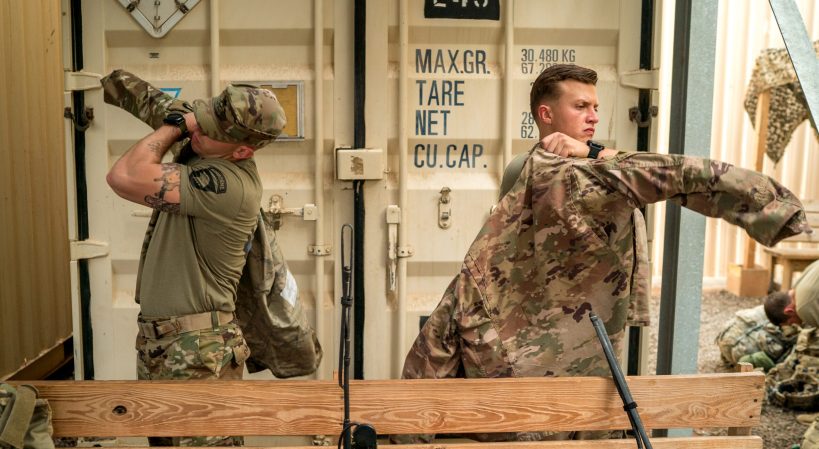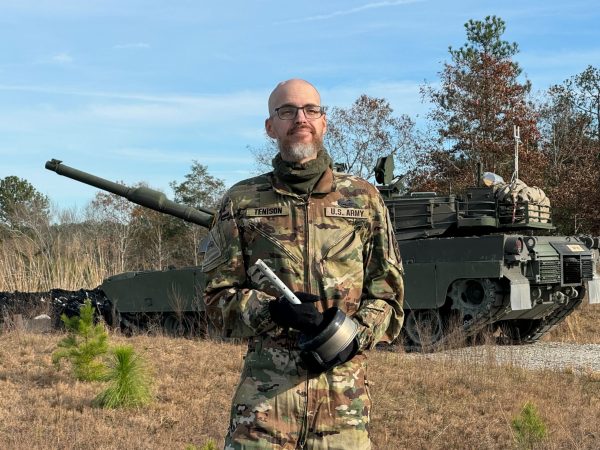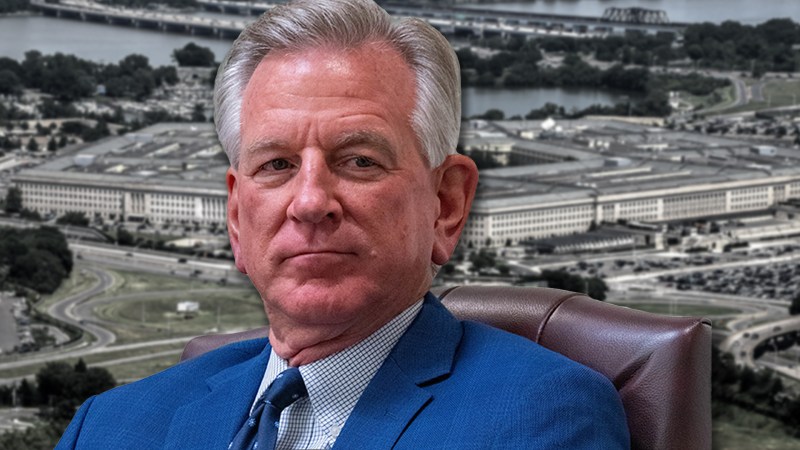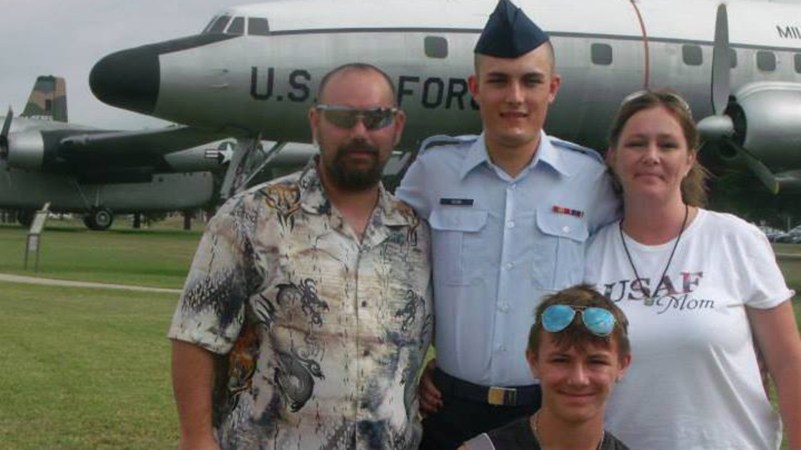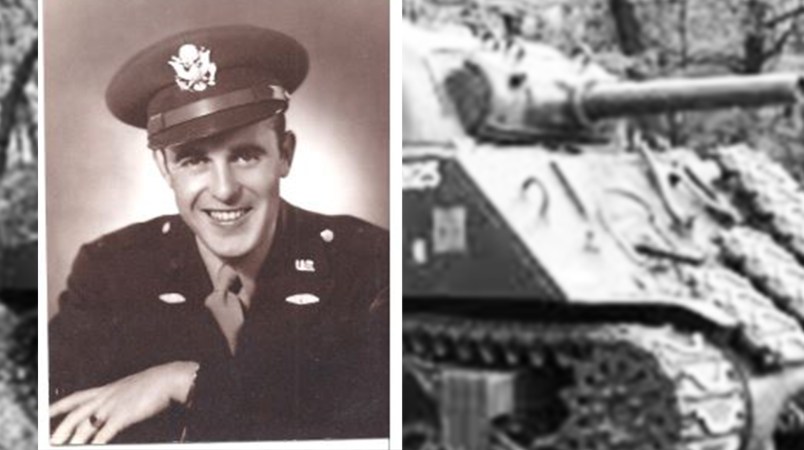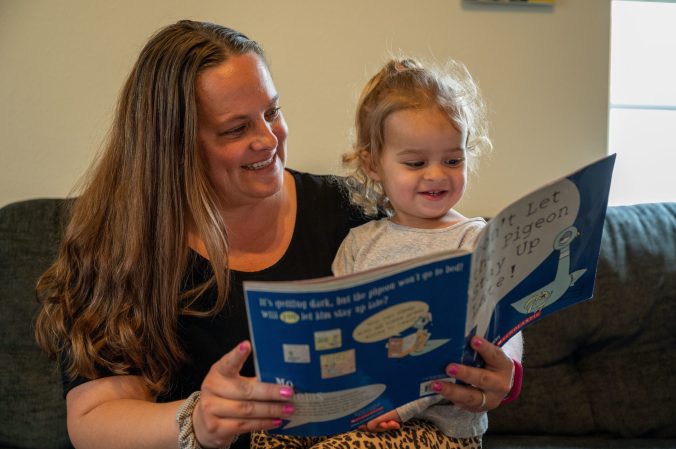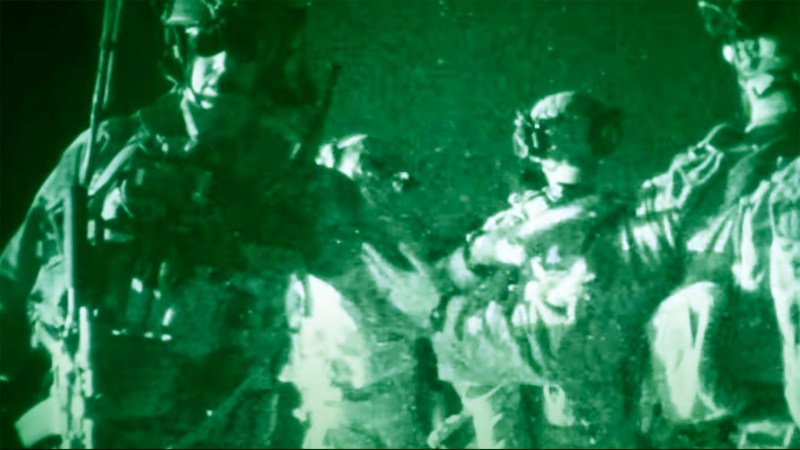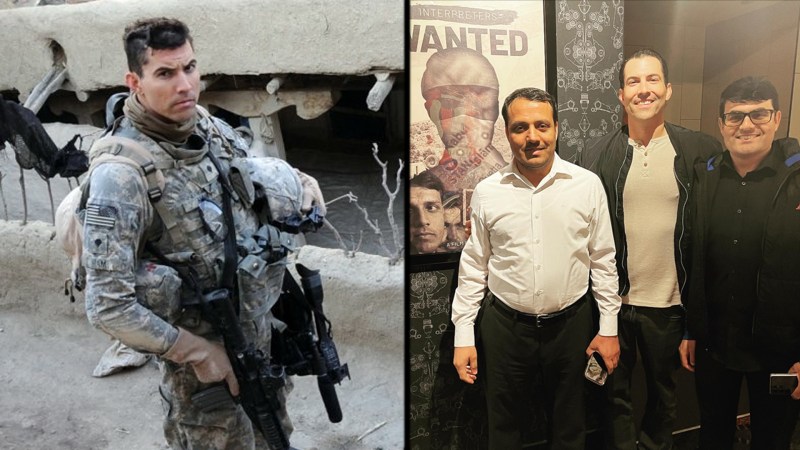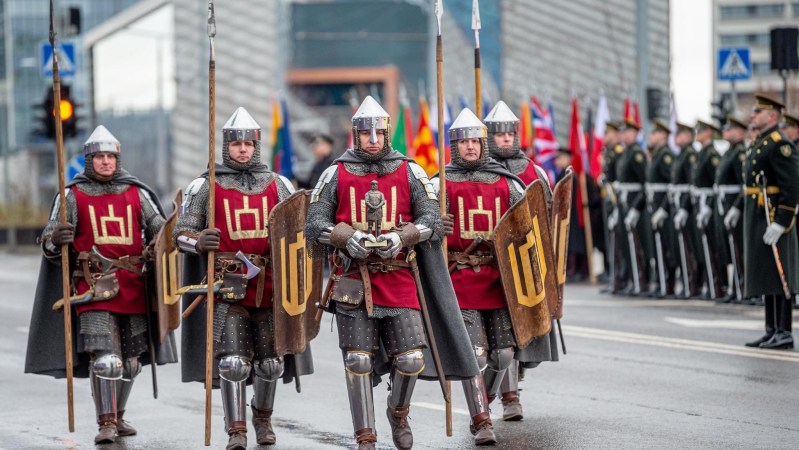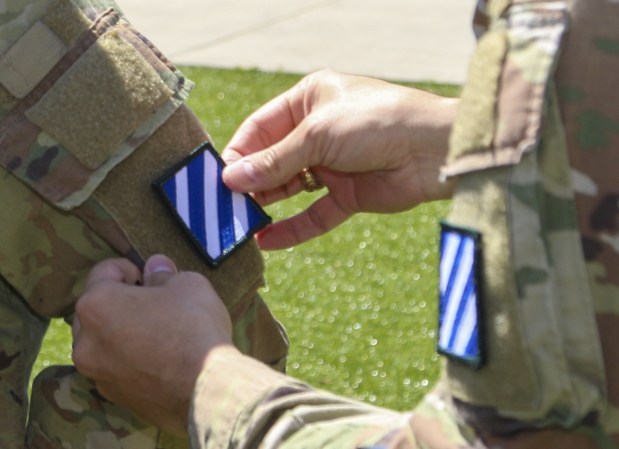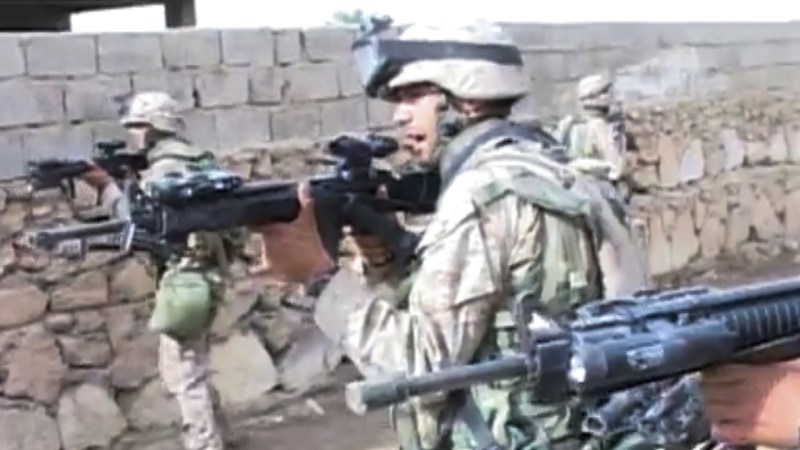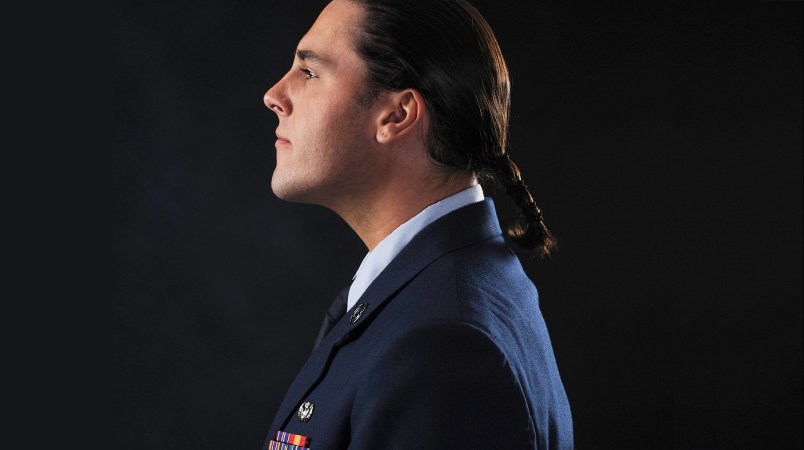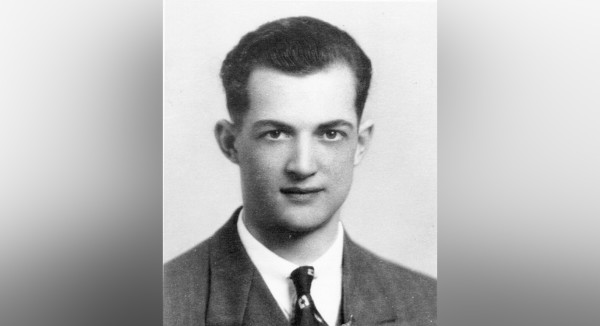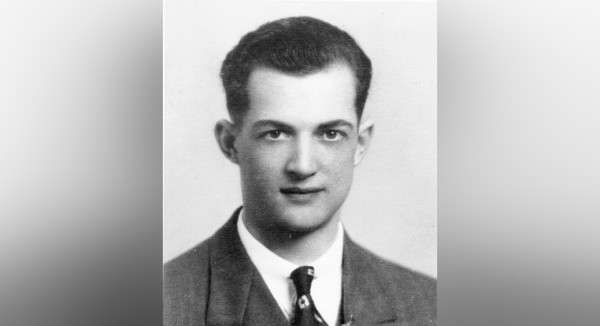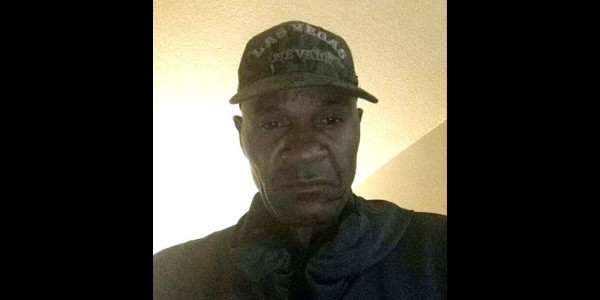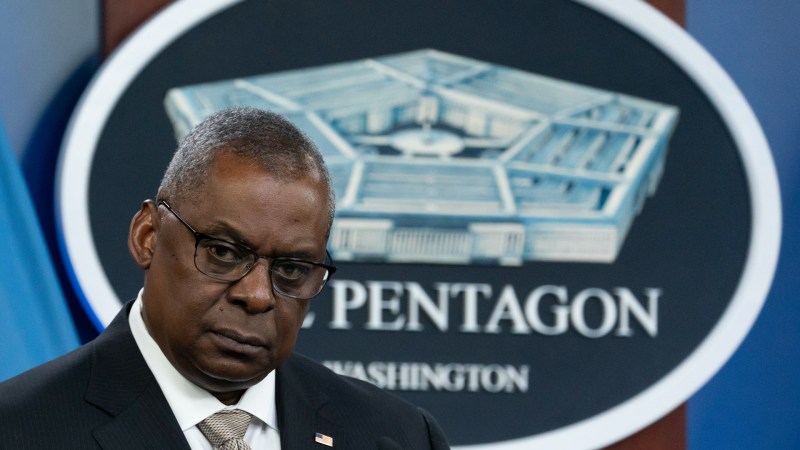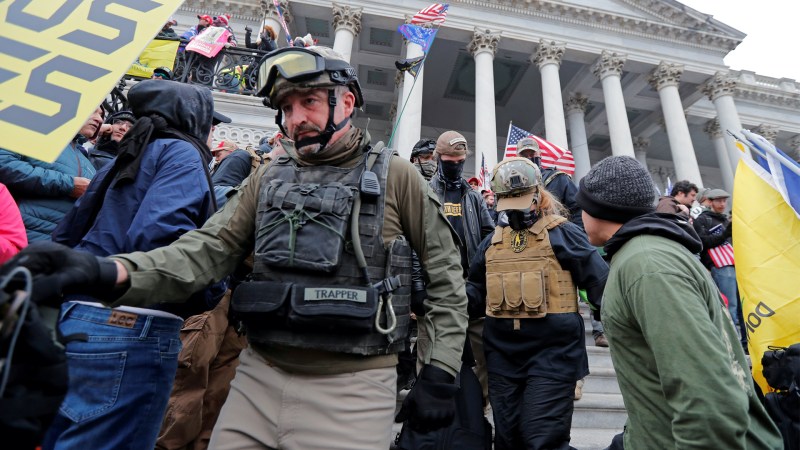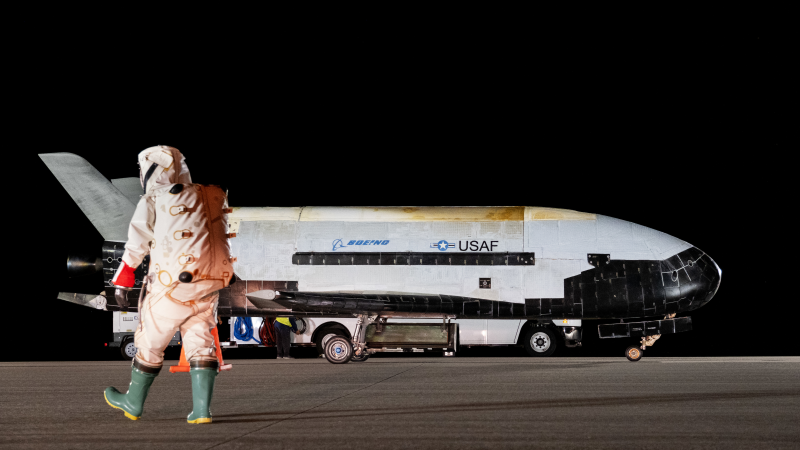While Brian Floyd’s fellow paratroopers were enjoying nights out and shenanigans that young soldiers usually get themselves into, he was saving money as an enlisted 18-year-old towards a dream of one day owning a farm.
By the time he finished 10 years on active duty, Floyd had bought over 100 acres in Arkansas. He slept in a trailer to save money, hosted a reunion with dozens of paratroopers, raised cows, goats and rabbits, and, when a neighboring farm was selling, added three big barns — known as houses — to raise turkeys.
“I really think that’s one of the reasons farming appeals to veterans so much because – you hear this in the military all the time – what you put into it is what you get out of it,” he said.
But on a cold night last month, a turkey house went up in flames, killing a whole flock and his main source of income.

“I watched everything I ever worked for in my life burn up,” Floyd told Task & Purpose.
Now a community of former paratroopers are trying to help. One set up a GoFundMe and donations have begun to pour in from friends and fellow veterans.
“I just don’t feel that he deserved this tragedy,” said Adrian Bonenberger, a former captain who deployed with Floyd with the 173rd Airborne Brigade. “I don’t think that anybody does but I don’t know, I can think of some politicians and people in the world where if something really bad happened to them, I wouldn’t feel bad about it. Maybe in some way they deserved it – the karma of the world. But I don’t think that Brian does.”
Arkansas to Afghanistan
Floyd wanted to be a farmer from the time he was a little boy. His first job at 7 or 8 was walking his uncle’s chickens in the humid Arkansas summer. He spent most of his life, even during the Army, saving enough money to build his dream farm.
Floyd enlisted in 2006. He spent six years with the 173rd Airborne Brigade in Vincenza, Italy and then four with the 82nd Airborne Division. He deployed to Afghanistan twice, spending 15 months along the Pakistan border and a year in the Tangi Valley.

As a forward artillery observer, Floyd was the voice of his unit on tactical radio nets, reporting enemy movements and positions. Sometimes, he found, his Arkansas drawl got in the way.
“When I first started, people couldn’t understand me on the other side of the radio,” he said. “So they kind of ground my accent out of me.”
It wasn’t just his accent that set Floyd apart from most soldiers. He was a man of faith and preferred saving money for his future over going out on the town.
“Whenever my Army buddies were out drinking and stuff, I was either hanging out in the barracks or walking around town doing free stuff because my money was going into this place,” he said.
His fellow soldiers noticed.
“I remember him being somebody who talked a lot about saving money and he got a lot of shit for it, too,” Bonenberger said. “Everyone’s like, ‘I’m saving money for a new car. What are you getting when you get home?’ And he was just very single-minded about saving money.”
It worked. While on active duty, Floyd bought 121 acres of land outside Berryville.
Martin remembered that even as a freshly enlisted soldier, Floyd talked about his future farm.
“At 18, I could barely decide on what shoes to wear and he already had a life picked out for himself,” Martin said. As he got to know the soldier from Arkansas, Martin came to think that Floyd’s country twang and single-minded focus reminded him of a character on King of the Hill. “I met him at 18 and he practically sounded like Boomhauer: ‘I’m gonna start me a farm.”’
From the Army to Berryville
Floyd moved to his Berryville farm in 2016 after getting out of the military and almost immediately jumped at the chance to add on to it. His neighbor was selling an established turkey-raising operation.
Floyd decided to buy the turkey farm for the litter that the birds produce which fertilizes the soil and improves the quality of the Arkansas dirt, he said. The turkeys begin their lives as chicks in a so-called “brooder house,” a 500 foot long barn. The birds are then moved to a second large barn called a grow out house when they’re 6 weeks old. They grow up on the farm for 18 to 22 weeks until they’re shipped for processing.
Floyd’s farm sits on more than 170 acres in a rural area with little cell service. Cows, goats, horses and rabbits roam and graze on the wide open green pastures while the sun sets over the nearby hills and forms cotton candy clouds. The camper where Floyd lays his head is parked near a set of three long turkey houses, a common sight in Arkansas. By the 1950s, Berryville earned the title “Turkey Capital of the World.”
Subscribe to Task & Purpose today. Get the latest military news and culture in your inbox daily.
The land is sprinkled with bees and fruit trees, but his main source of income is animal agriculture.
With the farm established, Floyd offered his farm to host a reunion of his company from the 173rd. Hosting on a farm kept the costs low, meaning more people could come, he said.
In 2022, several dozens former paratroopers and their families came for a weekend among the picturesque Arkansas flat-topped mountains covered with oak and hickory forests. They played with the farm’s animals, kayaked on the Buffalo River, hiked nearby hills, and grilled one of the cows Floyd slaughtered to feed everyone from his own farm.

The fire
The sky was dark except for the flames that lit up Floyd’s turkey barn. His puppy woke him up in the middle of the night and as he opened the door of his trailer, he saw flames racing through the barn. His first thought was to turn off the propane-burning heaters he’d lit to keep the birds warm during the night.
“I jumped up, ran outside as naked as the day I was born to shut the propane off to the building. And by the time I got to the propane, there were flames coming out of the building, three-quarters of the way down,” he said.
By the time he got dressed and shut the power off, the fire department was on scene and the building started to collapse. It was all over in 15 minutes. Nearly 16,000 baby birds perished. With them went hundreds of thousands of dollars that Floyd invested to buy the turkey operation.

In the aftermath, Floyd realized that his insurance policies would be unlikely to cover his losses. He’d insured the barn for $250,000 but skyrocketing costs for materials meant that a replacement might cost $650,000. He’d switched carriers in late 2023 when his previous carrier stopped insuring poultry farms altogether. With the new company, he took out what he could afford, but not enough.
“Looking back now it would have been a good investment,” he said. “But at the time I looked at it as – if I increase my insurance to this, I cannot afford to keep farming.”
The news shocked his paratrooper friends.
“When this all happened it was a real bummer because he had been working on getting a farm since before I knew him,” Martin said.
With enough donations, Floyd’s plan is to rebuild the barn and continue hosting reunions. He’s planning one for May and another for 2025. Floyd has no incentive to give up on his farming dream which he has found solace in as a veteran.
“It gives you a whole lot of freedom that whenever you’re in the military, you give up for the sake of being in the military,” Floyd said. Farming gives veterans “a taste of being free” to make their own work schedule, to determine their own hours and to decide how they dress, he said.
“Your cows don’t care if you’re wearing boxer shorts or if you’re wearing a tuxedo,” Floyd said. “It’s the same to a cow. He does not care.”
To make sure that slice of serenity continued to see another year, Luke Martin, who was also a forward artillery observer with the 173rd, started a GoFundMe page. Donations from fellow paratroopers started to pour in.
“They’re helping Brian not necessarily just because of the reunion, but what the reunion represents. The reunion represents a guy who’s going out of his way to bring people together and that’s rare and that’s precious in this world,” Bonenberger said.
Martin also hopes that the larger veteran community will show up for Floyd, just as he has done for others.
“If he could get all the money they loaned out back right now, he wouldn’t even need the fundraiser,” Martin said.
The latest on Task & Purpose
- The Army asked soldiers to turn in excess gear. It got back 37,000 items
- Medal of Honor recipient Clint Romesha unpacks life as a tanker
- Navy SEALs who disappeared during mission off Somalia identified
- Ukrainian Bradley only had a two-person crew when it wrecked a T-90
- China is expanding its marine corps, but how capable is it?


